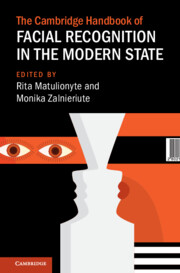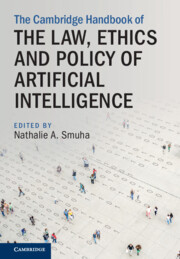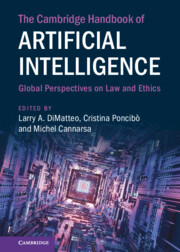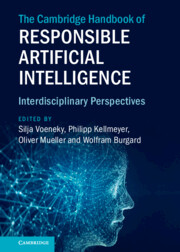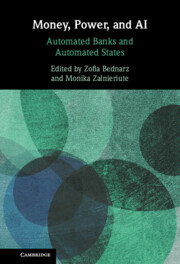The Cambridge Handbook of Facial Recognition in the Modern State
In situations ranging from border control to policing and welfare, governments are using automated facial recognition technology (FRT) to collect taxes, prevent crime, police cities and control immigration. FRT involves the processing of a person's facial image, usually for identification, categorisation or counting. This ambitious handbook brings together a diverse group of legal, computer, communications, and social and political science scholars to shed light on how FRT has been developed, used by public authorities, and regulated in different jurisdictions across five continents. Informed by their experiences working on FRT across the globe, chapter authors analyse the increasing deployment of FRT in public and private life. The collection argues for the passage of new laws, rules, frameworks, and approaches to prevent harms of FRT in the modern state and advances the debate on scrutiny of power and accountability of public authorities which use FRT. This book is also available as Open Access on Cambridge Core.
- Highlights the diverse perspectives, concerns, and hopes in relation to facial recognition technology
- Outlines risks, challenges, and opportunities to mitigate and prevent harms brought about by FRT tools
- Available as Open Access on Cambridge Core
Product details
April 2024Hardback
9781009321198
306 pages
235 × 159 × 22 mm
0.59kg
Available
Table of Contents
- Introduction: facial recognition in the modern state Rita Matulionyte and Monika Zalnieriute
- Part I. FRT in Context: Technical and Legal Challenges:
- 1. Facial recognition technology: key issues and emerging concerns Neil Selwyn, Mark Andrejevic, Chris O'Neill, Xin Gu and Gavin Smith
- 2. FRT 101: technical insights Ali Akbari
- 3. FRT in 'bloom': beyond single origin narratives Simon Michael Taylor
- 4. Transparency of facial recognition technology and trade secrets Rita Matulionyte
- 5. Privacy's loose grip on facial recognition: law and the operational image Jake Goldenfein
- 6. Facial recognition technology and potential for bias and discrimination Marcus Smith and Monique Mann
- 7. Power and protest: FRT and public space surveillance Monika Zalnieriute
- 8. Faces of war: Russia's invasion of Ukraine and military use of FRT Agne Limante
- Part II. FRT Across the Globe: Jurisdictional Perspectives:
- 9. Government use of FRT under European law Simone Kuhlmann
- 10. European biometric surveillance, concrete rules and uniform enforcement: beyond regulatory abstraction and local enforcement Paul De Hert and Georgios Bouchagiar
- 11. Lawfulness and police use of facial recognition in the UK: Article 8 ECHR and Bridges v South Wales Police Nora Ni Loideain
- 12. Does Big Brother exist? Face recognition technology in the United Kingdom Giulia Gentile
- 13. Facial recognition technologies in the public sector: observations from Germany Andreas Engeli
- 14. Central-Eastern Europe perspective to FRT regulation: a case study of Lithuania Eglė Kavoliūnaitė-Ragauskienė
- 15. An overview of facial recognition technology regulation in the United States Mailyn Fidler and Justin (Gus) Hurwitz
- 16. regulating facial recognition in brazil: legal and policy perspectives Luca Belli, Walter Britto Gaspar, Nicolo Zingales
- 17. FRT regulation in China Jyh-An Lee and Peng Zhou
- 18. Principled regulation of facial recognition technology: a view from Australia and New Zealand Nessa Lynch and Liz Campbell
- 19. Morocco's governance of cities and borders: AI-enhanced surveillance, facial recognition and human rights Sylvia I. Bergh, Issam Cherrat, Francesco Colin, Katharina Natter and Ben Wagner.

